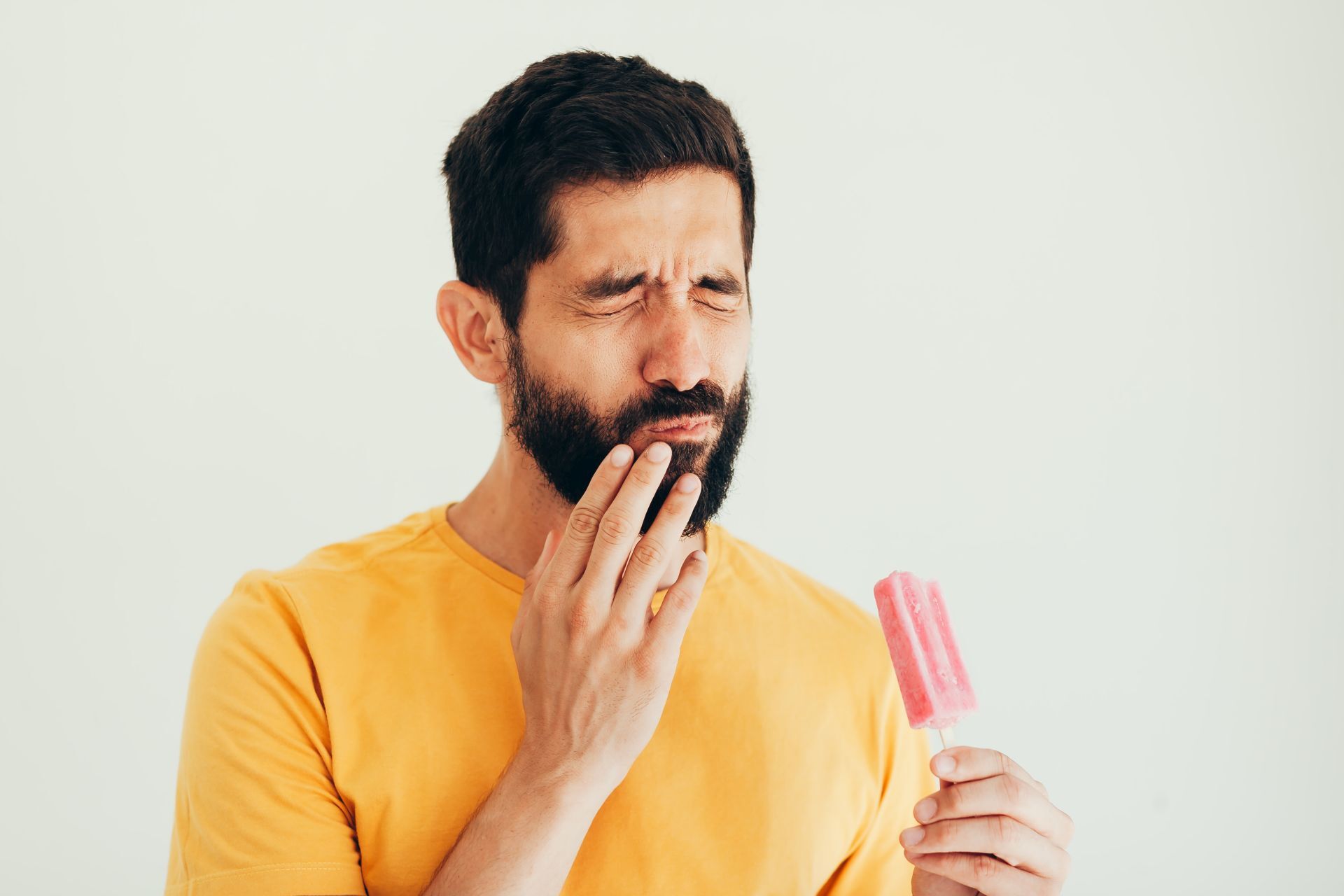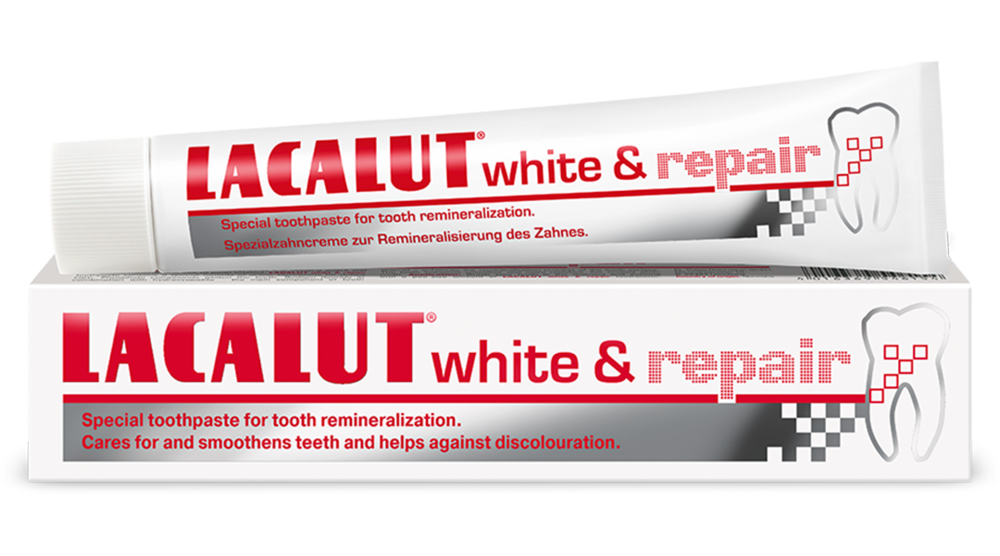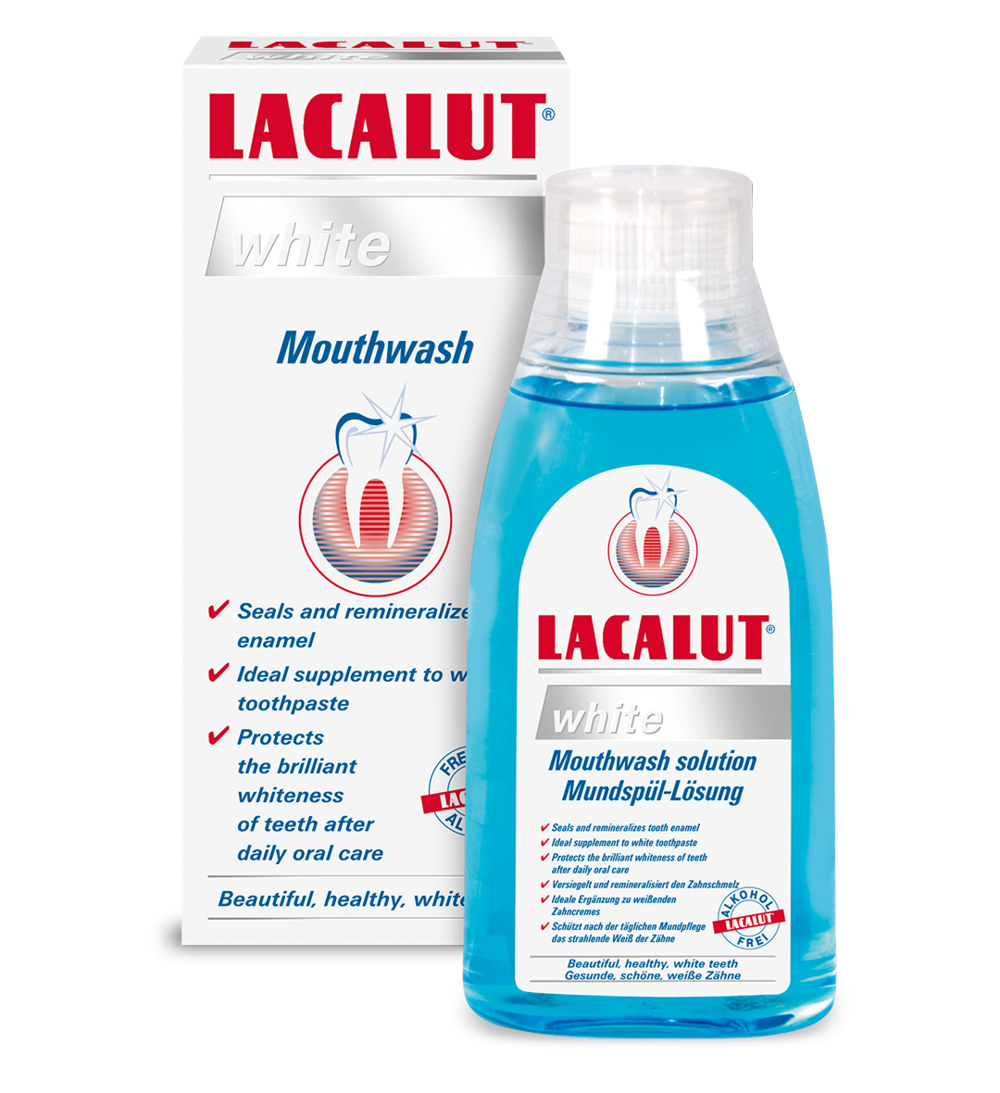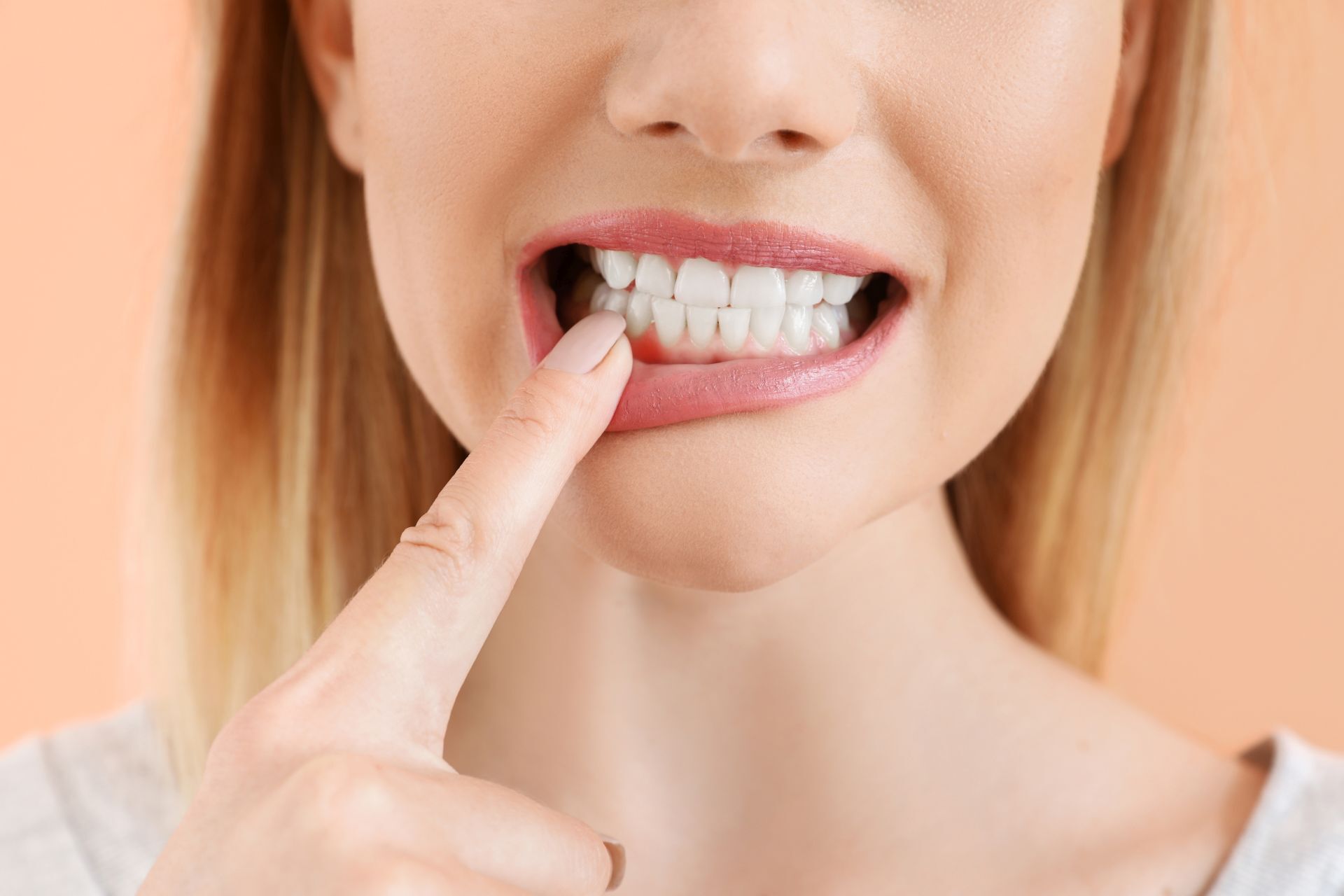The coffee is too hot, the ice cream too cold and treats are too sweet if you feel a shooting pain in your teeth that feels like a lightning flash whenever you try to enjoy them. This can even happen when a sharp gust of wind hits your teeth while you are out walking. This is what doctors describe as sensitive teeth or dentine hypersensitivity. Almost every second to third German suffers from it, and it often affects not just one but several teeth. Exposed tooth necks are usually to blame for the increased sensitivity to pain.
Pain-sensitive teeth: Know the causes
The tooth necks are normally covered by the gums and therefore well protected from heat, cold, sweet or sour foods, and this shielding is very much needed because the tooth necks are covered in thousands of small canals (medically known as: dentine tubules) that transmit stimuli directly to the dental nerve. If the gums recede, the tooth necks are exposed, and the teeth become more and more sensitive. For some patients, their teeth are so sensitive that they fear the dentist’s instruments or water-air jet because any contact with the teeth causes a flash of pain. But it does not have to get that far, anyone who knows the causes of sensitive teeth can prevent the symptoms:
- Incorrect cleaning technique. Even if it is well meant, brushing your teeth for too long and too vigorously can damage them. Anyone who consistently exceeds the recommended three minutes does not remove more plaque but rather runs the risk of injuring the gums, especially in the tooth neck area. The former then recede further. Firm scrubbing can also wear away the protective tooth enamel.
- Inflammation. A common reason for sensitive teeth is periodontitis. This inflammation of the periodontium is caused by bacteria and poor or incorrect oral hygiene. In this case, the gums swell, become reddened and bleed more easily when you are brushing your teeth. If the disease is left untreated, the gums recede and expose the sensitive necks of the teeth.
- Teeth grinding. During the night, when you are grinding your teeth (medically known as: bruxism), forces act on the teeth that are up to ten times greater than during chewing. Doctors suspect that as a result, wedge-shaped defects can then form in the area of the tooth necks, which then cause the teeth to become more sensitive.
- Foods. Acidic foods and drinks such as juices, lemonade or wine attack the tooth enamel. The acid demineralises the enamel and lowers its protective function.
Sensitive teeth – this is what your dentist can do
Pain-sensitive teeth are very uncomfortable and can interfere with everyday life. Nevertheless, many patients endure the pulling sensations in the mouth or hope that they will go away on their own. However, it is better to consult a dentist – especially if the gums are bleeding or if receding gums are recognisable even to a layperson. The expert will then decide which therapy is indicated. If the tooth necks are exposed, they can be sealed with a transparent fluoride varnish. The application closes the fine channels and prevents pain transmission. Wedge-shaped defects on the tooth neck, such as those caused by grinding at night, can be filled by the dentist with an almost invisible plastic. In the case of periodontitis, the dentist will once again explain the correct oral hygiene in detail, clean the gingival pockets and remove any tartar. In some cases, antibiotics are also required. If the gums have already receded very far, they can be put back into their original position during an operation.
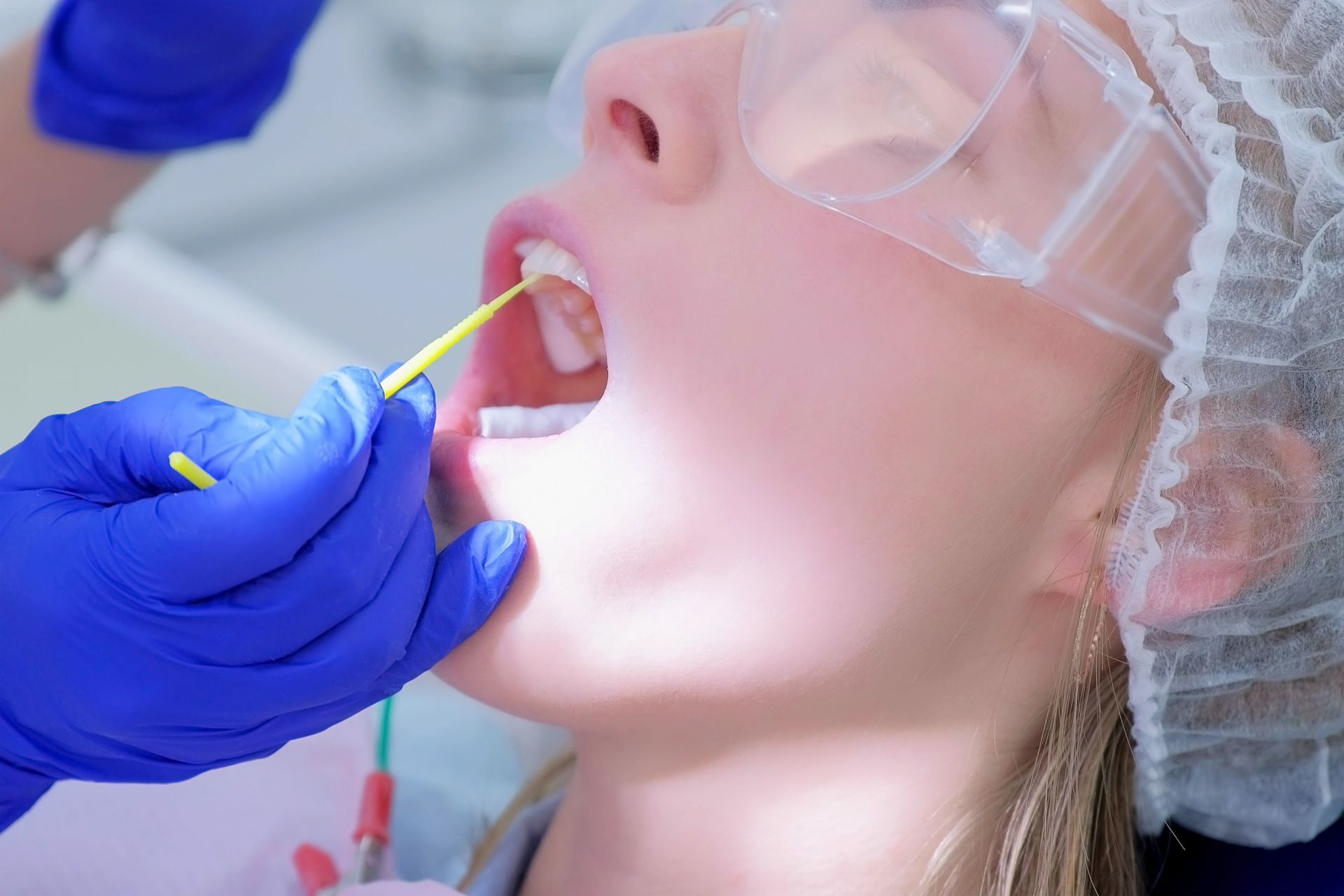
Pain-sensitive teeth are very uncomfortable and can interfere with everyday life. Nevertheless, many patients endure the pulling sensations in the mouth or hope that they will go away on their own. However, it is better to consult a dentist – especially if the gums are bleeding or if receding gums are recognisable even to a layperson. The expert will then decide which therapy is indicated. If the tooth necks are exposed, they can be sealed with a transparent fluoride varnish. The application closes the fine channels and prevents pain transmission. Wedge-shaped defects on the tooth neck, such as those caused by grinding at night, can be filled by the dentist with an almost invisible plastic. In the case of periodontitis, the dentist will once again explain the correct oral hygiene in detail, clean the gingival pockets and remove any tartar. In some cases, antibiotics are also required. If the gums have already receded very far, they can be put back into their original position during an operation.
First aid for the pain at home
In addition to treatments at the dentist’s practice or even to avoid them, there is something everyone can do to actively protect tooth necks and gums – and to thereby reduce the risk of sensitive teeth or to relieve pain.
Dental hygiene. A softer toothbrush, specially adapted interdental brushes from the dentist and a gentle toothpaste free from aggressive abrasivA softer toothbrush, specially adapted interdental brushes from the dentist and a gentle toothpaste free from aggressive abrasive particles are often helpful, so that the teeth and gums are irritated less. Since tooth substance consists mainly of calcium and phosphate, experts recommend using mild toothpastes that include these components, e.g. LACALUT® extra sensitive toothpaste. These remineralise the teeth and harden their substance. And anyone who feels stressed or in a hurry while brushing their teeth often applies excessive pressure with the toothbrush. In the long run, this can lead to tooth substance being removed from the tooth necks. That's why it's better to take your time when cleaning your teeth.
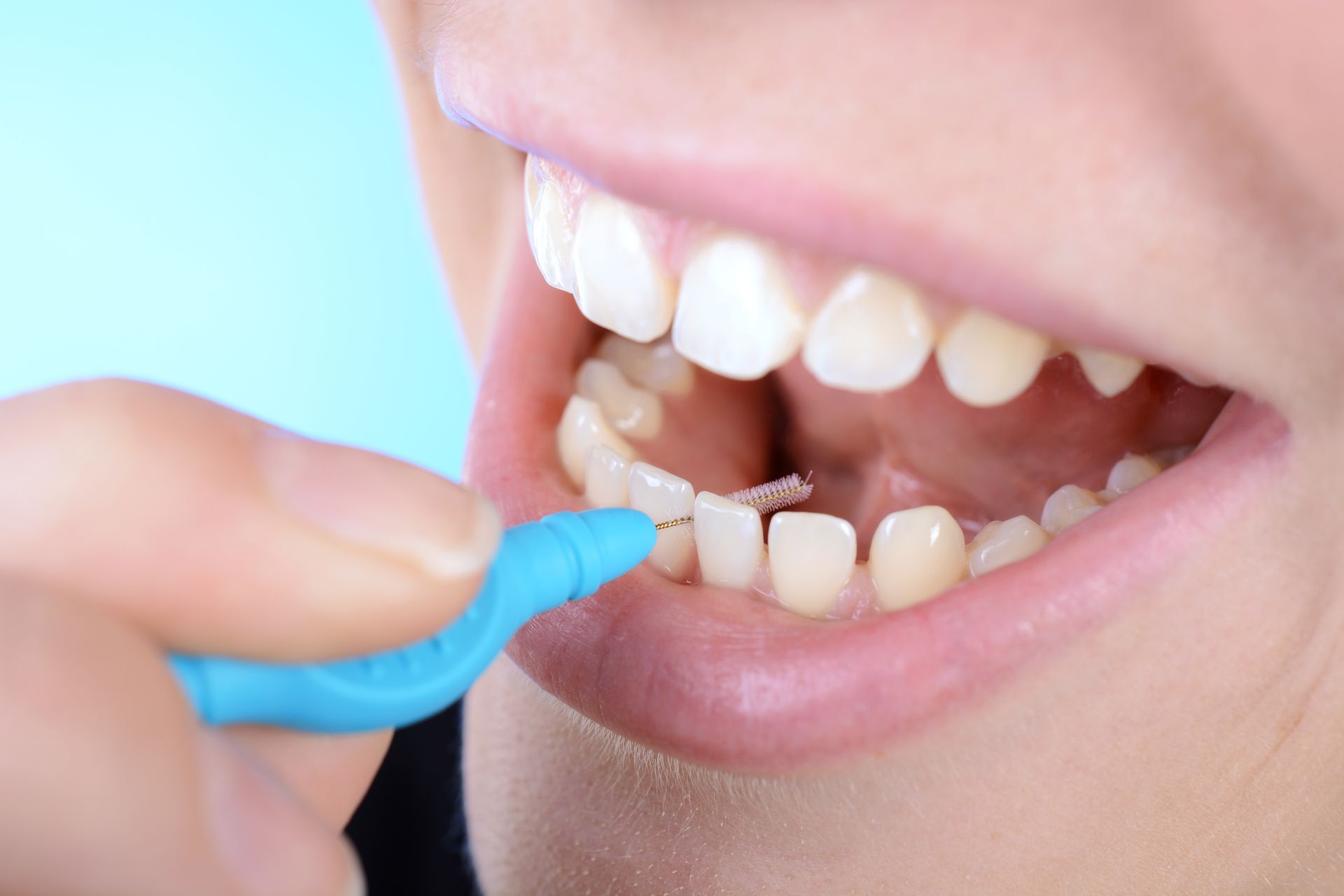
Dental hygiene. A softer toothbrush, specially adapted interdental brushes from the dentist and a gentle toothpaste free from aggressive abrasivA softer toothbrush, specially adapted interdental brushes from the dentist and a gentle toothpaste free from aggressive abrasive particles are often helpful, so that the teeth and gums are irritated less. Since tooth substance consists mainly of calcium and phosphate, experts recommend using mild toothpastes that include these components, e.g. LACALUT® extra sensitive toothpaste. These remineralise the teeth and harden their substance. And anyone who feels stressed or in a hurry while brushing their teeth often applies excessive pressure with the toothbrush. In the long run, this can lead to tooth substance being removed from the tooth necks. That's why it's better to take your time when cleaning your teeth.
Time. If your teeth are sensitive, you should not clean them immediately after eating. Otherwise, the enamel can be worn away more easily. As a rule of thumb, wait at least 30 minutes or even better wait 60 minutes.

Time. If your teeth are sensitive, you should not clean them immediately after eating. Otherwise, the enamel can be worn away more easily. As a rule of thumb, wait at least 30 minutes or even better wait 60 minutes.
Calcium. The mineral calcium increases the resilience of the teeth and gums. It is found in dairy products but also in green vegetables and wholegrain foods. It is therefore advisable to include these on your daily menu. Caution, on the other hand, is advised with acidic foods such as fruit juice, lemonade and wine. The acid attacks the tooth enamel.
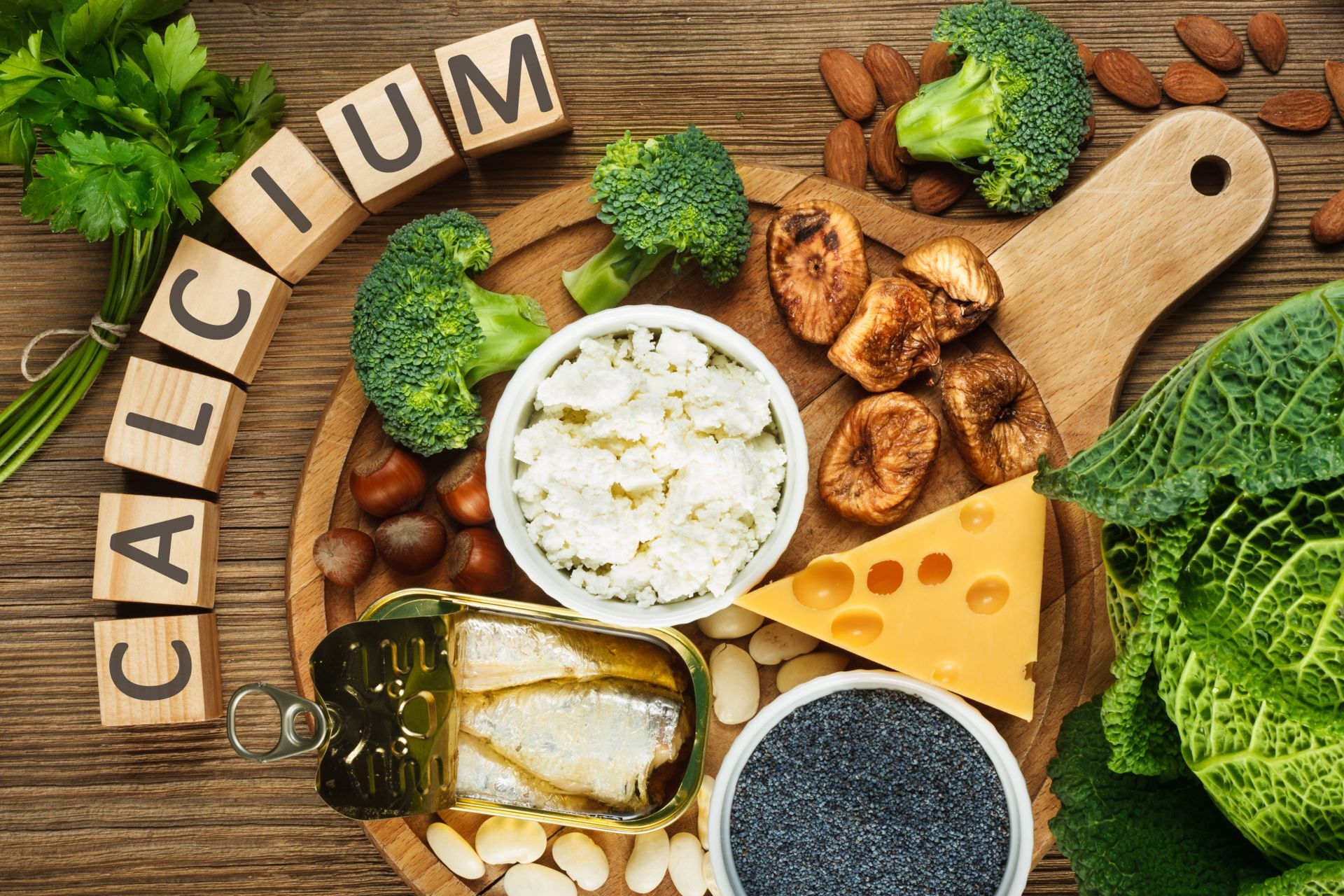
Calcium. The mineral calcium increases the resilience of the teeth and gums. It is found in dairy products but also in green vegetables and wholegrain foods. It is therefore advisable to include these on your daily menu. Caution, on the other hand, is advised with acidic foods such as fruit juice, lemonade and wine. The acid attacks the tooth enamel.
Protective splint. Anyone who grinds their teeth at night should have an anti-bruxism splint made by their dentist. It protects the teeth from abrasion and wedge-shaped defects that can result from jaw movements.
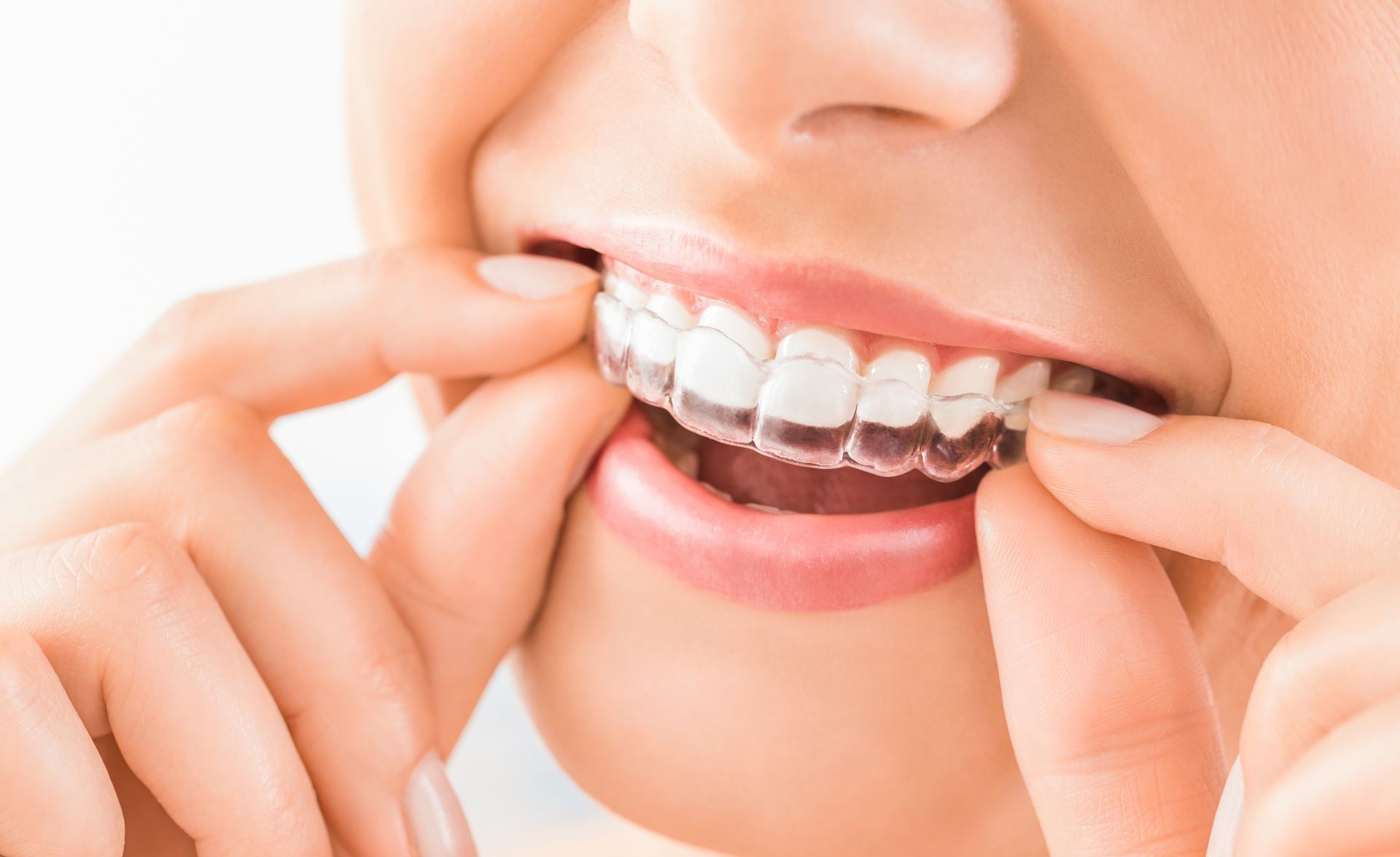
Protective splint. Anyone who grinds their teeth at night should have an anti-bruxism splint made by their dentist. It protects the teeth from abrasion and wedge-shaped defects that can result from jaw movements.
